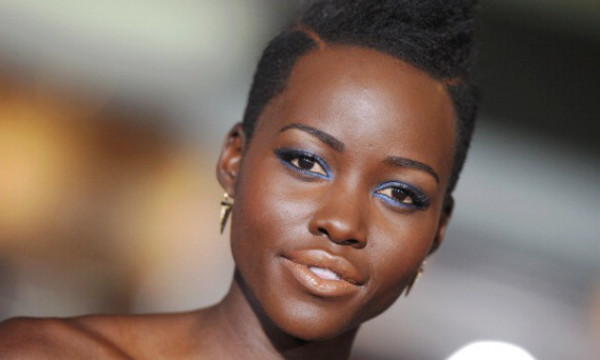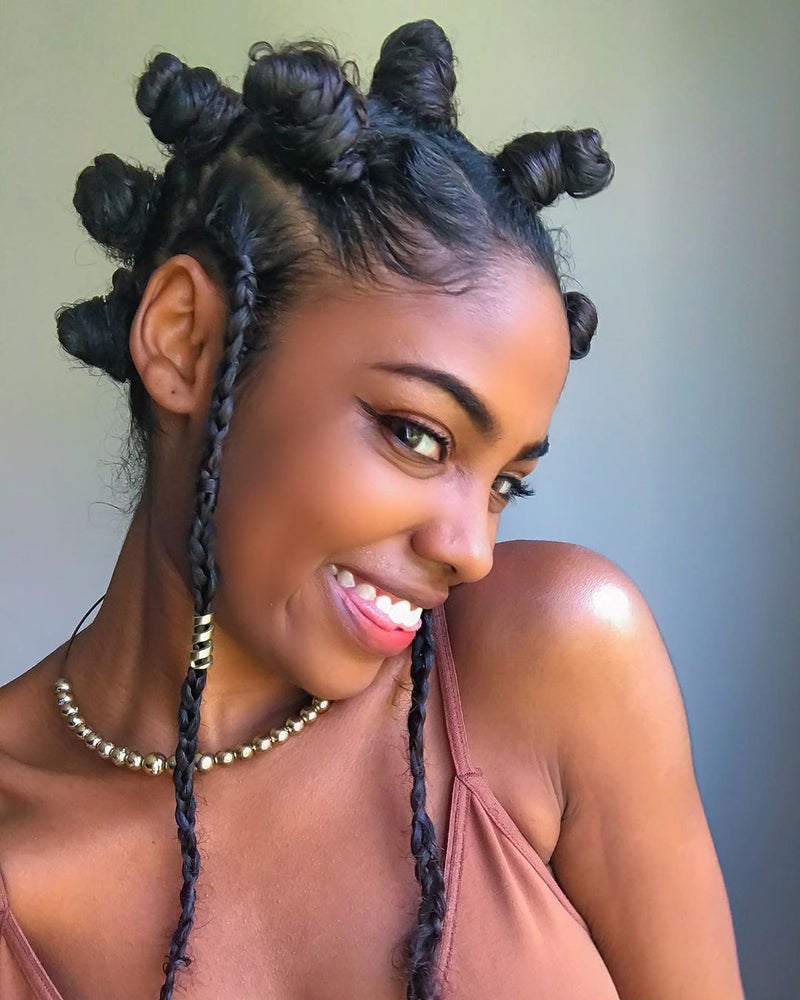We’d like to make this loud and clear to each and every racist person or entity out there: Black iS beautiful, and nobody can take that away. We stand in solidarity with all the protesters out there who have gathered outside several pharmacy chain stores in South Africa in reaction to a shampoo advertisement slammed by the critics as “racist”.
The advertisement, commissioned by the TRESemme hair company and carried on the Clicks pharmacies’ website, compared two photos of Black women’s hair with two photos of white women’s hair, labelling the natural hair “dry and damaged” and “frizzy and dull”, while the white women’s hair was “fine and flat” and “normal”.
But what Clicks and TRESemme do not know is that, black hair is not only beautiful, but strong and can literally survive any weather or condition – without breaking!
We’d like to school them on what Black Women hair is all about… grab a pen and paper Clicks!
1. Black hair is literally different than all other hair.
While other races can have straight, wavy, or curly strands, most black people have varying degrees of tightly curled strands. (Check out this article’s chart for a more in-depth explanation.) It may come in spirals, coils, loops, zig zags, or other curves. This is why it tends to grow up rather than down and can make gravity defying shapes like afros and puffs.
2. Perms, weaves, and extensions are all options for Black women, and sometimes simultaneously.
But what are all of these things? Great question!
Perm: When non-Black women refer to a perm, they are often talking about adding a permanent curl to their hair through a chemical process. But Black hair is already curly. So when we say “perm,” we are referring to permanently straightening our hair (also known as a relaxing.)
Weave: For a weave, the woman’s real hair is braided into cornrows or other scalp braids. Then the extra hair is woven to those braids with a needle and string made especially for hair weaving.
Extensions: Extensions are like weaves but they don’t usually require the cornrows as a base. Depending on the type of extensions, the hair may be added through braiding or even specialty glue.
Natural: This generally refers to Black hair that has not had its texture altered by chemicals. Some take it a little further by not using any chemicals at all or anything that does not occur in nature.
3. Black hair does grow.
It’s a myth that Black hair doesn’t grow. All human hair grows at about half an inch a month, depending on your health and genetics. Having long hair is really more about how much hair you retain after breakage.
Black hair, because it’s curly, can be weaker than straighter hair. Each bend in the strand represents a weak point in the hair shaft, which makes it more prone to breakage. All this means is that it takes a little more TLC to avoid breakage. So we tend to have shorter hair, but that doesn’t mean it doesn’t grow.
4. Natural hair is a big deal.
For much of the Black American experience, we have been encouraged to look as European as possible. So straightening our hair with chemicals or a hot comb was the only way a Black woman could look “presentable” for a long time. If you wanted be beautiful or have a good job, your hair better look as not Black as possible.
Natural hair experienced a resurgence during the Civil Rights Era and has continued to grow in popularity. Natural hair is not necessarily a symbol of the wearer’s Black pride, but it is definitely a symbol of accepting our hair as it grows from our heads. Every time I walk into a business meeting with my hair in an afro or a puff, I’m doing something that many generations of Black woman wouldn’t have dared to do.
5. Hot combs are the enemy.
A hot comb is a medieval torture device used to punish Black women for not having straight hair that lives up to European standards of beauty hair tool used to straighten hair.
It is a piece of metal with heat-safe handle that is held over a fire or on a stove. Once it’s hot enough to burn the skin off of you, it is used to “press” the curls out of your hair by combing through it. And depending on how sure the hand of your hairdresser/mother/BFF is, it will also burn the back of your neck, the tips of your ears, and any other surface it might touch.
The hot comb has mostly fallen out of fashion but any Black woman over the age of 20 has memories of being burned by one.
6. We do not wash our Black hair every day because Black hair (see #1).
The key to really nice shiny, healthy hair is a balance of the natural oils we all produce. With straight or wavy hair, oil travels down the shaft fairly easily. But if your hair is very curly or kinky, it’s harder for oil to travel through those loop-the-loops. So while non-Blacks may wash their hair a lot to avoid excess oil, Black women worry more about maintaining what they have or adding more. If we washed our hair every day, it would be dry and unhealthy.
7. We change our hairstyles a lot because we can. Winning!
Culturally, Black women have the most options with their hair. It can be permed or natural. Bought or grown. Straightened or fluffy. Completely disappeared with a big pair of earrings to accessorize our bald heads. Don’t be alarmed. It’s just one of the many great things about us.
One of the not-so-great things about this? Having to have that lame conversation on the first day back at the office after getting our hair done about how it has “magically grown.” Girl. Please see #3.
8. Even if you ask nicely … we don’t want you to touch our hair.
First, thank you for asking. Touching a Black woman’s hair without her permission is extremely rude. But even if you ask nicely, the answer is probably no.
I don’t know where your hands have been and I also don’t want you messing up my ‘do. More importantly, most of us feel like allowing strangers to touch our hair just so they can experience it is akin to being pet like an animal. At best it’s awkward, and at worst it’s dehumanizing. So, it’s fine to admire our hair from afar but please keep your hands to yourself, if you’d like to keep them at all.
What else should everyone know about Black hair? Tell us and we’ll keep adding to this list!
Main Image: eNCA





